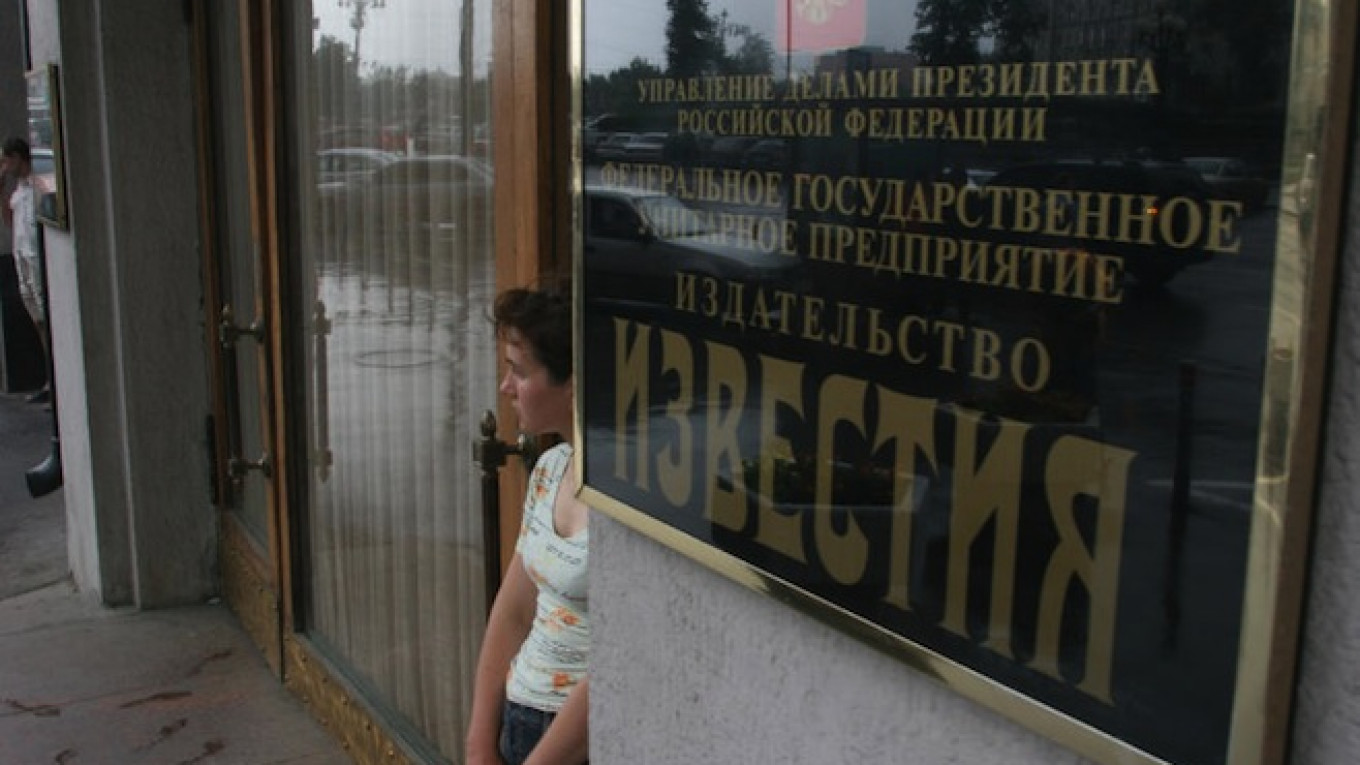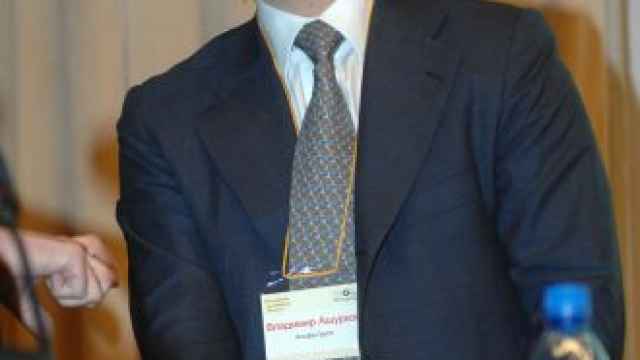Russia's Investigative Committee has reportedly demanded explanations about government subsidies to media that support opposition positions after a pro-Kremlin daily accused a government agency of supporting publications that pursue “clearly anti-state” policies.
The report by the pro-government newspaper Izvestia on Tuesday named some of Russia's best-known remaining independent-minded media outlets among the supposed recipients of the funds, including radio station Ekho Moskvy, television channels RBC and Dozhd, and tabloid daily Moskovsky Komsomolets, or MK.
The report accused Russia's federal agency for media development, Rospechat, of having “carried out substantial financial infusions from state budget into mass media outlets whose editorial policy followed a clearly expressed anti-state position,” when it subsidized the publications in 2010-14.
Rospechat — the government agency, not to be confused with a media distribution company of the same name — responded with an online statement, conceding its support for educational and humanitarian projects in the media, but saying that Izvestia's claims of the amounts of the grants were “exaggerated twofold.”
The agency published a list of projects it has supported and the amounts of donations, adding that its subsidies to media outlets named by Izvestia amounted to 0.02 percent of Rospechat's budget in 2010-14.
“The names of programs and headings speak for themselves: They are all socially oriented and are devoted to the issues of the fight against terrorism and extremism, support for people with disabilities, adoptions of orphans, combating drug abuse, promotion of reading and the Russian language,” Rospechat head Mikhail Seslavinsky said in a statement.
“We support those topics every year in hundreds of media outlets,” he added.
But the Investigative Committee appeared to deem the funding issue suspicious, sending a letter to Seslavinsky with demands for explanations, according to a copy of the document published in an online piece later Tuesday by MK.
The letter included a list of media outlets whose funding the Investigative Committee was looking into. The list included the Novaya Gazeta newspaper, RBC news agency and its newspaper RBC Daily, Snob magazine, and news portals Snob and Bolshoi Gorod ("Big City"), in addition to the outlets named by Izvestia.
Kremlin spokesman Dmitry Peskov said Wednesday that the idea of the Kremlin having a media blacklist was “absurd.”
“There isn't and couldn't be any media blacklist,” he was quoted as saying by the TASS news agency.
The Investigative Committee has received “full and exhaustive” information from Rospechat in response to its query, MK added, suggesting that the case was closed.
The report provided no details, but Rospechat said in its statement that neither Dozhd television nor Ekho Moskvy radio received any subsidies in 2014, although during the three preceding years Dozhd received 15.3 million rubles ($278,000 at today's rate), instead of the 30.6 million that Izvestia claimed, and Ekho Moskvy received 7.5 million.
The Izvestia article also said that the subsidy distribution was supervised by Rospechat deputy chief Vladimir Grigoryev, accusing him of being “benevolent to opposition figures.”
It then took issue with Ekho Moskvy editor-in-chief Alexei Venediktov, accusing him of pursuing an “editorial policy that often carries an openly anti-Russian character” — language reminiscent of Soviet-era newspaper diatribes against “anti-Soviet” activities.
MK called the language of the Izvestia report “worthy of Stalin's times.”
Rospechat, meanwhile, said in its statement that Grigoryev “is not involved in the questions of financing electronic media and is not a member of relevant expert councils.”
In yet another assault, Izvestia accused Grigoryev of supporting companies run by Alexandrina Markvo, the partner of opposition activist Vladimir Ashurkov.
The Investigative Committee said in the letter to Rospechat that its interest in media financing was linked to its case against Markvo, but provided no details.
Ashurkov, a close associate of opposition leader Alexei Navalny, has recently received political asylum in Britain. Markvo is also living in London and was arrested in absentia by a Moscow court in February on fraud charges linked to her work for an advertising agency.
Contact the author at [email protected]
A Message from The Moscow Times:
Dear readers,
We are facing unprecedented challenges. Russia's Prosecutor General's Office has designated The Moscow Times as an "undesirable" organization, criminalizing our work and putting our staff at risk of prosecution. This follows our earlier unjust labeling as a "foreign agent."
These actions are direct attempts to silence independent journalism in Russia. The authorities claim our work "discredits the decisions of the Russian leadership." We see things differently: we strive to provide accurate, unbiased reporting on Russia.
We, the journalists of The Moscow Times, refuse to be silenced. But to continue our work, we need your help.
Your support, no matter how small, makes a world of difference. If you can, please support us monthly starting from just $2. It's quick to set up, and every contribution makes a significant impact.
By supporting The Moscow Times, you're defending open, independent journalism in the face of repression. Thank you for standing with us.
Remind me later.






